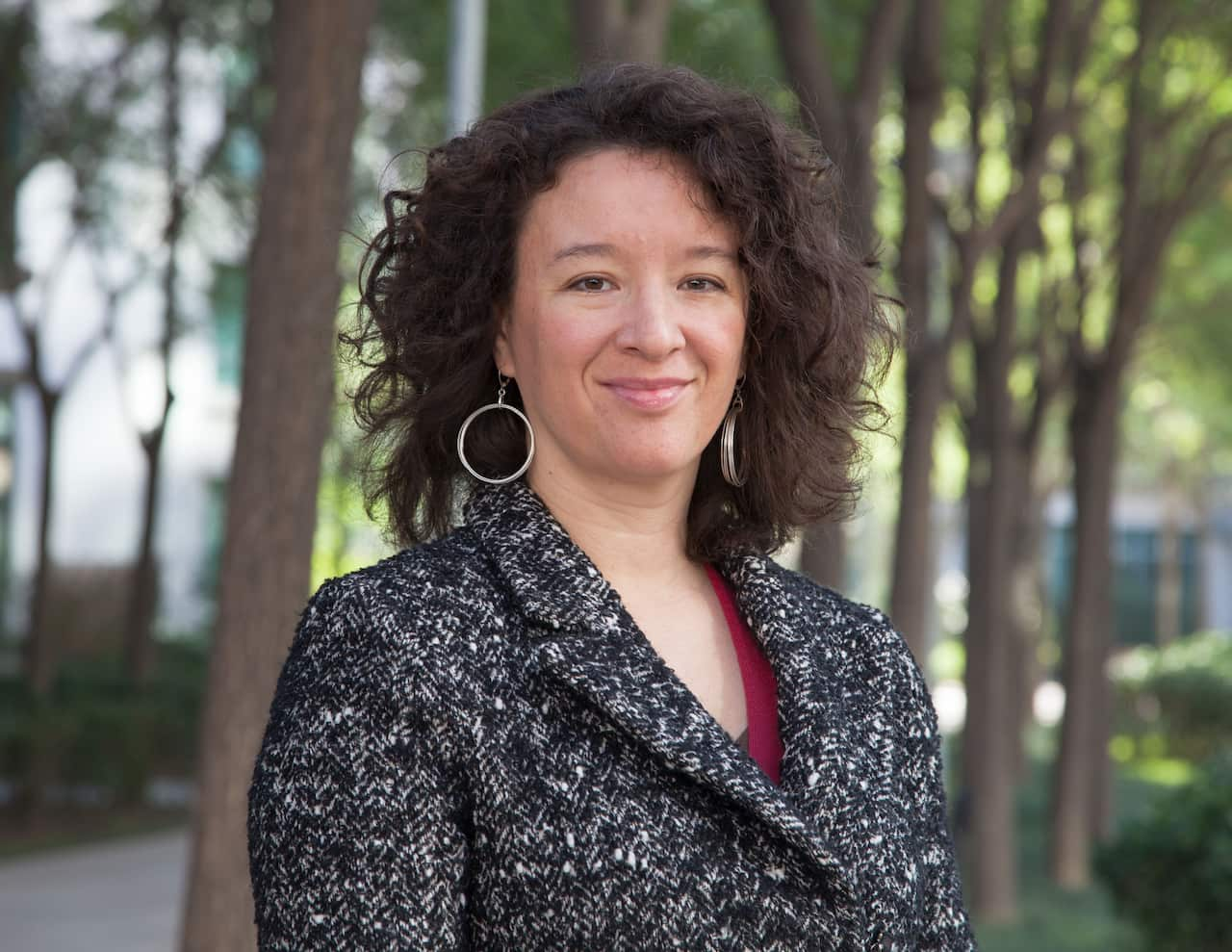On the eve of International Women’s Day in 2015, when news broke that five women were jailed in China for standing up against sexual harassment on public transport, writer and scholar Leta Hong Fincher was “shocked and deeply worried”. It wasn’t just that the activists were arrested for simply handing out stickers on buses and trains. Nor was it because she’d spent years studying and reporting in China and knew all too well of its human rights abuses. The sinking feeling came — to her surprise — because she recognised one of the young women’s names.
“I knew Li Maizi. I had met her in 2013 in Beijing, and I’d written a little about her at the end of my first book, The Leftover Women. So I was very worried when they were detained,” says Hong Fincher.
The dramatic arrest of Li, along with her fellow activists, attracted global attention and sparked social media outcry. Petitions calling to free the women were circulated in the country, while world leaders and high profile public figures including Hillary Clinton called for the women’s release. On Twitter, scores of supporters galvanised over the hashtag campaign of #FreeTheFive.
After 37 days of mounting political pressure, the women were released. And the five virtually unknown activists became the faces of a new wave of women’s rights movement — now widely known as China’s Feminist Five.
“They’d become public figures without knowing it while in detention,” says Hong Fincher. “By the time they were released, there had been this deluge of reporting about them.” Ironically, in jailing these women, the Chinese authorities ended up sparking a much bigger movement.

Hong Fincher was interested in the vast social impact made by these young, educated and enormously resilient women. After their release, she interviewed each of the Feminist Five — Li Maizi, Wei Tingting, Zheng Churan, Wu Rongrong, and Wang Man — and began to paint a fuller picture of Chinese gender activism in her 2018 book, Betraying Big Brother: The Feminist Awakening in China.
“One thing that was striking about all the feminist activists I interviewed was that all of them, with one exception, wanted their real names to be used,” says Hong Fincher. “I think it’s because the news about them have always been erased and censored in China. They wanted their stories to be told. They wanted to be part of a historical backbone.”
But China’s so-called feminist awakening didn’t happen overnight. While news reports have drawn comparisons to the rise of Pussy Riot in Russia, the Feminist Five have long been active in lobbying the government about domestic violence legislation and equal rights.
In 2012, Li had staged a Valentine’s Day protest against domestic violence in Beijing, where she and several others marched through tourist districts in blood-stained wedding gowns, chanting “Yes to love, no to violence”. These grassroots activists also called for more rights for factory workers and overlapped with the LGBTIQ+ rights movement — putting young women at the centre of a new, radical wave of social change.
Hong Fincher argues that before 2015, feminism wasn’t considered a politically sensitive topic in China. Since the Feminist Five, however, the government began a series of systematic crackdowns which included tightened surveillance on social media.
One example is the emerging #MeToo movement in China. Last year, the global hashtag became one of China’s top 10 “most sensitive” topics that were routinely censored by the authorities. Consequently, social media users adopted homophones like “#RiceBunny” (pronounced as “mi tu” in Chinese) to circumvent online censorship.
At the same time, thousands of students signed #MeToo petitions demanding that their universities take action against sexual harassment on campus across the country— all galvanised around the issue of the oppression of women and gender inequality.
“While the feminist activists themselves aren’t directly confronting the communist party, they are calling for women’s emancipation,” says Hong Fincher. “They are sending the message that women should be able to control their own bodies, and should be able to make their own decisions about their lives and have the right to do whatever they want with their lives. They shouldn’t have to marry and have babies if they don’t want to.”
But the consequences of “betraying big brother” can be severe. In a country where patriarchal orders are ingrained and oppressive, retaliation against those who speak out against powerful abusers are often devastating and extreme.
“All of the women who tell their stories can be expelled from university, they certainly can be fired, harassed regularly by security agents and police. One of the main ways to persecute activists is for the police to go and harass their landlords and kick out the tenants. So some of these feminist activists are constantly being kicked out of their apartments and having to look for new housing…Of course, at the extreme level, they can be detained or ‘disappeared’,” says Hong Fincher.
Today, all of the Feminist Five continue to work in Hong Kong or China. Li Maizi has since completed a Masters degree in the UK and recently returned to Beijing. And high profile #MeToo cases involving powerful Chinese public figures have been making headlines both locally and overseas, despite the backdrop of ever-increasing censorship
“The fact that this movement has survived and grown in the last four years since the jailing of the Feminist Five is really extraordinary,” says Hong Fincher, “We have a lot to learn from them.”
Leta Hong Fincher will appear at All About Women festival on Sunday March 10 at the Sydney Opera House. Tickets here.

